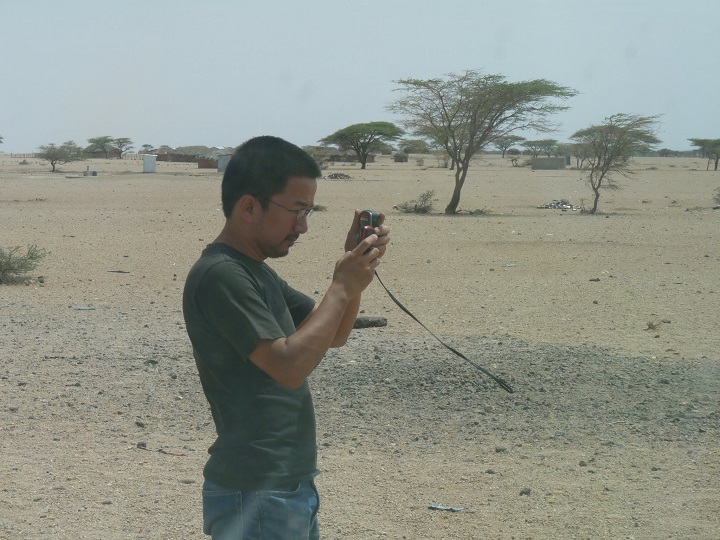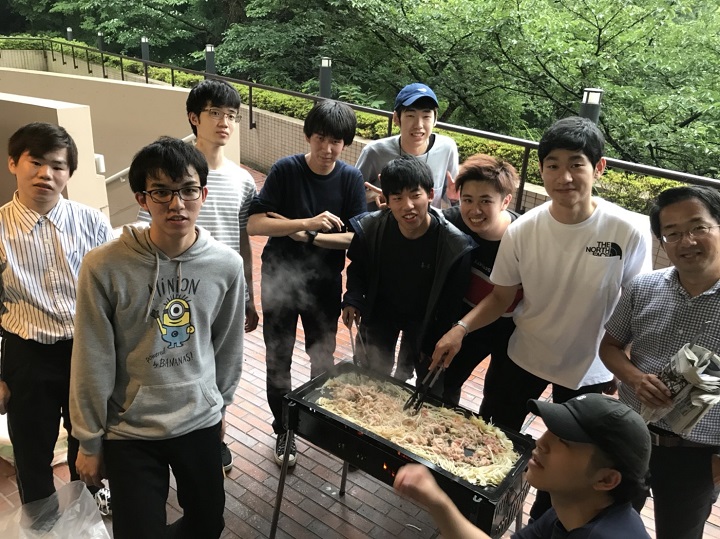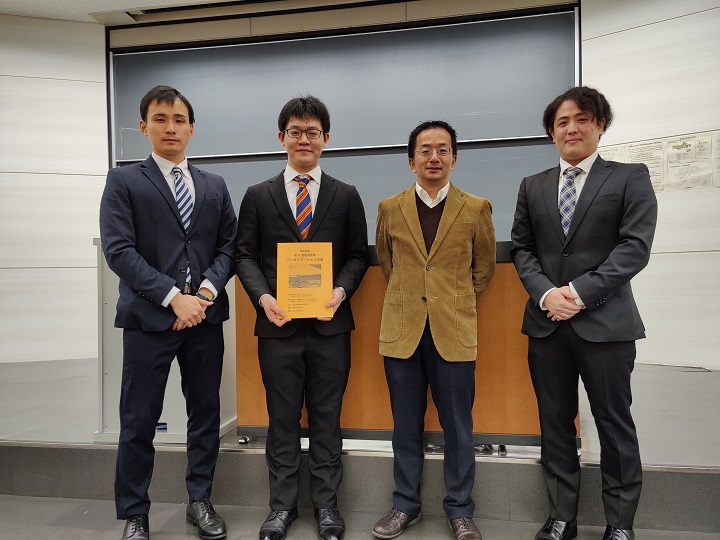reseach
Addressing Poverty Issues of Developing Countries through Household Budget Survey for African Pastoralists
Munenobu Ikegami, Professor
Department of International Economics, Faculty of Economics
Posted May.26,2023
Faculty Profile
Professor Munenobu Ikegami engages in research on the economic activities of developing countries with a focus on the pastoralists in Kenya and Ethiopia. He is addressing world poverty issues by conducting research and analysis on people’s actual lives in an objective manner.
Surveying Household Data of Pastoralists Living in Kenya and Ethiopia
I specialize in development microeconomics. Development microeconomics is an academic area that targets developing countries in microeconomics, which studies the economic activities of individuals and households. I mainly focus on the pastoralists in Southern Ethiopia and Northern Kenya, and analyze their household budgets.
Ethiopia and Kenya are located in East Africa, an area with a dry environment and low rainfall where it is difficult to grow crops. Thus, many families engage in nomadic herding, in which people travel in search for water and pasture grass to grow and breed cattle.
They are faced with the deep-rooted social issue of poverty, and suffer from risks of periodic droughts due to their unstable nomadic life in severe natural environments. In some cases, people are trapped in a vicious circle, the so-called “poverty trap.”*1 In order to escape such a situation, it is necessary to seek economic cooperation and development support from economically wealthy countries.
However, it is impossible to demonstrate the necessity of support based only on an assumption. So, evidence showing their poverty status is required. That is found in our household data, which was verified through examining the target areas precisely.
I am currently studying the household activities of pastoralists, including 500 households in Southern Ethiopia and 900 households in Northern Kenya. I hope that publishing the results as an academic paper will lead to proposals of support measures to solve poverty issues.
Developing countries account for over 70% of the world. The Japanese government provides economic support to many developing countries through the Japan International Cooperation Agency (JICA). However, many issues remain. Development economics is a practical academic discipline that contributes to international society by pursuing what can be done to improve living conditions in developing countries. This is truly practical wisdom.
*1. Poverty trap: A vicious circle in which people with low incomes find it difficult to increase their income levels because their productivity remains low due to their low educational levels.

Conducted study on Kenyan pastoralists in October 2010 when stationed in Kenya. Recorded the field locations using global positioning system (GPS)
Starting Research at University and Disseminating Outcomes at Conferences
When I was a high school student, I began thinking that I wanted to do something to address international social issues, such as poverty and conflicts. To become an international official working for an international organization, I joined the International Livestock Research Institute in Kenya after I graduated from college. I worked as researcher for almost a decade.
I started my career as a teacher at Hosei University in 2018, while continuing research activities. This is the first experience for me to work in Japan as well as to teach students, so my efforts were often futile at the beginning.
I have settled into the job after five years. As the next step, I hope to focus on presenting research outcomes from now on. I plan to make a presentation about my research paper at the conference hosted by the Centre for the Study of African Economies, the University of Oxford, UK, in March 2023.
This is my first conference presentation after returning to Japan. Taking this opportunity, I would like to proactively expand my research activities. Since people who are interested in African economies will gather at the conference, my research will be further strengthened through exchanging opinions with them.
Cross-border university networks will be of great help to advance research when it is difficult to conduct on-site surveys, unlike my previous job. I expect that the circle of people who work together will be expanded.
Hoping That Students Spend Time Liberally and Effectively at University
In the Faculty of Economics at Hosei University, there are professors who produce substantial research results in many areas. While inspired by such professors, I continue asking myself questions about what I can provide to students and how I can support their learning. I am aware that I am under training to become a qualified educator, and I would like to keep pace with students and work together instead of pushing them.
Although some people think that economics belongs to the humanities field, the kind of microeconomics and development economics in which I specialize requires mathematical skills. Mathematical formulas and figures are often used to aggregate research data and to analyze tendencies.
These are academic fields that combine the humanities and sciences, and thus they have a wide range of applications in society. However, such usability has not been well recognized. To increase the recognition, a trial and error process is necessary both in research and educational activities.
Recently, I feel that students are somewhat dispirited under the restricted circumstances caused by the COVID-19 pandemic. The four years of the undergraduate course are precious, so I hope that students use their free time strategically and effectively.
I’d like students to look forward and find something to try with enthusiasm and something to aspire to with great passion, rather than looking back on the stagnation of the past two years.

Networking event held to promote friendship between our seminar members before the COVID-19 pandemic. BBQ party held on the Tama Campus (2018)

Students independently discuss a wide variety of subjects in our seminar. Big smiles from students who work on their favorite subjects while keeping critical thinking in mind
Munenobu Ikegami, Professor
Department of International Economics, Faculty of Economics
Graduated from the Department of Policy Sciences, the Faculty of Policy Studies, Chuo University. Completed the doctoral course of the Agricultural and Applied Economics, the University of Wisconsin-Madison. Ph. D. (Agricultural and Applied Economics). After being stationed in Kenya as a researcher for the agriculture-focused International Livestock Research Institute, he joined the Faculty of Economics, Hosei University, as professor in 2018 (up to the present). Engaged in research on analyzing the causes of rises in demand for index-based livestock insurance and its long-term economic effects. Awarded Best Publication 2020 by the U.S. Agricultural & Applied Economics Association (AAEA) International Section in 2021 for the research paper*2.
*2. Research paper: Can insurance alter poverty dynamics and reduce the cost of social protection in developing countries? (Joint authorship with Professor Sarah Janzen of the University of Illinois Urbana-Champaign, and Professor Michael Carter of the University of California, Davis)

